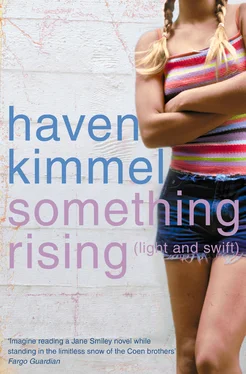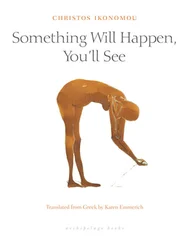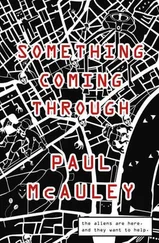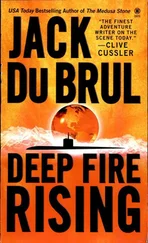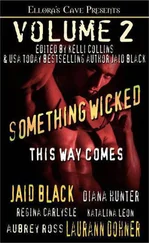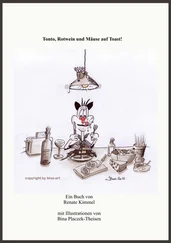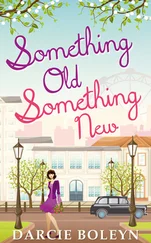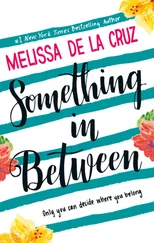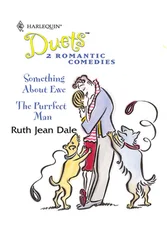“All right, come here now,” Bud said, setting up the three ball in front of a side pocket. “I want you to take this shot a hundred times, I’m going to stand here and count. If you make it fifty times you can come back tomorrow.”
It was an easy shot in some ways; she was shooting from the side of the table, and she didn’t have to reach. The three was eighteen inches from the pocket at what Bud said was about a thirty-degree angle. But Cassie had seen right away that this was a game in which mysterious forces seemed to be at work, which meant that sometimes things might go well and that was a surprise, and sometimes everything went wrong and that was also a surprise. Bud said there were an infinite number of variables to consider, and Cassie didn’t understand what that meant but remembered the phrase so she could ask Belle. He said take the best shot available to you, and if there isn’t one, go safe. If you practice a shot many times, you add it to a repertoire until you own the table. He said don’t go for the slice beyond ninety degrees, because when you do, you’re pushing hard against the spectrum of possible outcomes.
Other people began to trickle in, a middle-aged couple who looked like they’d just woken up and eaten fried eggs. A thin bald man playing alone. Cassie barely registered them. She made the shot sixty-two times, told Bud he could go about his business, then lined the balls up and started all over, and she did that right up until Edwin Meyer touched her on the arm and told her it was time to go home.
They got in Edwin’s car, a clean, modest Dodge that smelled like nothing but an unfolded map, and headed home. Edwin was younger than Jimmy but had started school at four and skipped two grades, so they ended up in the same class. Unlike Uncle Bud’s, Edwin’s life had diverged early from Jimmy’s, when Poppy wanted Jimmy to work at the hardware store and he refused. Edwin took the after-school job and stayed right there, no ladder to move up, just more responsibility to take on, longer hours to work, until Poppy decided to retire and sell, and Edwin bought the place. He’d been at Public Hardware twenty years now, Cassie guessed, and he was so much entwined with the building and the smell of nails in wooden bins, the creaking of the old floor, that if the store didn’t exist, Edwin wouldn’t, either. He’d go trinner and thinner until finally he couldn’t be seen, couldn’t be remembered. Cassie forgot him all the time. Laura said he felt responsibility for them all, as if, when he purchased Poppy’s business he also purchased his failings; Jimmy was clearly a failing. Someone, Edwin was fond of saying, had to keep everything in working order. He had no family of his own.
“Are you—you were there a long time—all right?” Edwin was wearing the clothes he favored for work: polyester trousers in a horrible shade of tan or green and a seersucker dress shirt from Sears. His thin dark hair lay flat against his head, Laura said he had a Lovely Face. Laura called him Sweet Reason. Cassie told Belle one night she thought Edwin loved Laura, and that’s why he was always calling on them for Chinese checkers and hot tea, but Belle said Cassie was wrong. She said he came for other reasons, and he was Pure.
“I’m fine, yeah.”
“A pool hall,” Edwin said, shaking his head. “I would have been in all kinds of trouble if I’d been caught in a pool hall at your age.”
Cassie looked out the window. Roseville was closing the shutters and rolling up the streets, as Jimmy would say. “What kind of music is this?”
Edwin turned the volume up. “It’s a polka. A German polka. My parents were German, you know, very firm. Firm, hardworking people.”
“Okay.”
“This is my favorite kind of music, although I don’t ordinarily say so. My parents had a Victrola, a real one, and a collection of seventy-eights. Big records. They used to put on a polka record on Saturday nights, just like tonight, and we would dance, it’s very joyful music, as you can hear.”
“Okay.”
“And my father became a different man. All week long he”— Edwin paused, drove—” counted the grains of salt we were allowed to put on our potatoes. He counted for my mother so she wouldn’t cheat. So Saturdays were great. For me.”
They drove out to the edge of town, turned on 300 West, headed for the King’s Crossing. “Do you know anything about bicycle chains?” Cassie asked, embarrassed.
“I surely do. I’m thinking about your bike, what sort of chain you need.” He thought. “It’s too old and slow and meant for a boy,” he said, as he turned the car around and headed back to the hardware store.
“Not if it’s a bother,” Cassie said.
“We’ll take care of it.” Edwin leaned in toward the steering wheel, smiled. “A project.”
They finished late. Cassie rode the bike down to the crossroads and back, and told Edwin it felt like new.
“I don’t think it was ever new, Cassie.”
“It’s better, though.” She thanked him, and he tipped an imaginary hat and got in his car and drove away, the faint strains of a German polka following him.
The house was quiet: Cassie found Belle at the table, reading her book and making notes. Her reports were so exhaustive, Laura said, that no one would ever need to read the things themselves. Belle drained a book.
Laura was standing at the kitchen sink, staring out into the dark yard where the finches fed, as if it were daylight and as if there were finches. The dinner dishes were done, and Cassie realized she hadn’t eaten. She fixed a peanut-butter sandwich, poured herself a glass of milk, and sat down on the floor next to her mother, leaning up against the cabinet door. Behind the door were cleaning solvents and toilet-bowl chemicals and various ammonias and bleaches, some still bearing the neon-green MR. YUCK! stickers from years before. Poppy had put the stickers on.
“Look how dirty your hands are,” Laura said, “up against that perfectly white bread.”
Cassie looked. “Yep.”
“It’s sort of pretty, isn’t it, the contrast.”
Belle made a sound from the table, a small disgusted explosion.
“Is that—Are your fingers blue?” Laura’s innocent, beleagured tone. “Were you playing pool?”
Cassie shrugged, looked away from Laura, whom she could feel continuing to stare at her for some seconds. Then there was the snap of the cigarette case opening, and the grinding of the wheel on the fighter, and Laura had looked back out the window, Cassie knew. Leaning against the cabinet door reminded her of a dream she’d had lately, a Replacement Dream, she was thinking of calling it. The Original Dream had been of flying way up in the air, above rooftops and treetops; once she had seen the details of a weathervane on top of an old bam. Once she had crash-landed in a pond and scared herself so badly she’d jumped out of bed. She had those dreams for a long time, she just spread her arms and fell forward (or backward, on one memorable occasion) and let the wind take her, nothing to it. And then she had a dream in which flying required a code word, and Cassie didn’t have it. The only way she could get it was to turn her head and look over her left shoulder as a flying horse crossed the path of the moon, and somehow she managed it, and then she was up in the air and the feeling in her gut was stronger than when she was just sailing over barns like Peter Pan. That went on a while, the searching for the code or the key; once it was in a refrigerator in a dark basement, and the refrigerator was filled with vials of something. But the Original Dream was completely gone, Cassie could sense it, because now she was dreaming that she had to enter a windowless room of her own house, or at least she was told repeatedly it was her own house, and kneel in front of what might be a filing cabinet or a kitchen cabinet just like this one, open the door, and roll into it backward as if she were doing a backward somersault, and then she was propelled into what the Other People in the dream called flying, except where was the sky, where was the air? She seemed to remain in the cabinet with this strange, tossed-about, sick feeling in her gut that was like the flying feeling, only much stronger. And no flying.
Читать дальше
